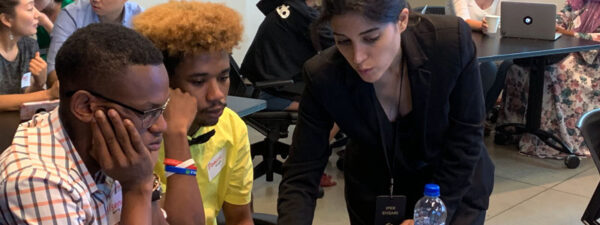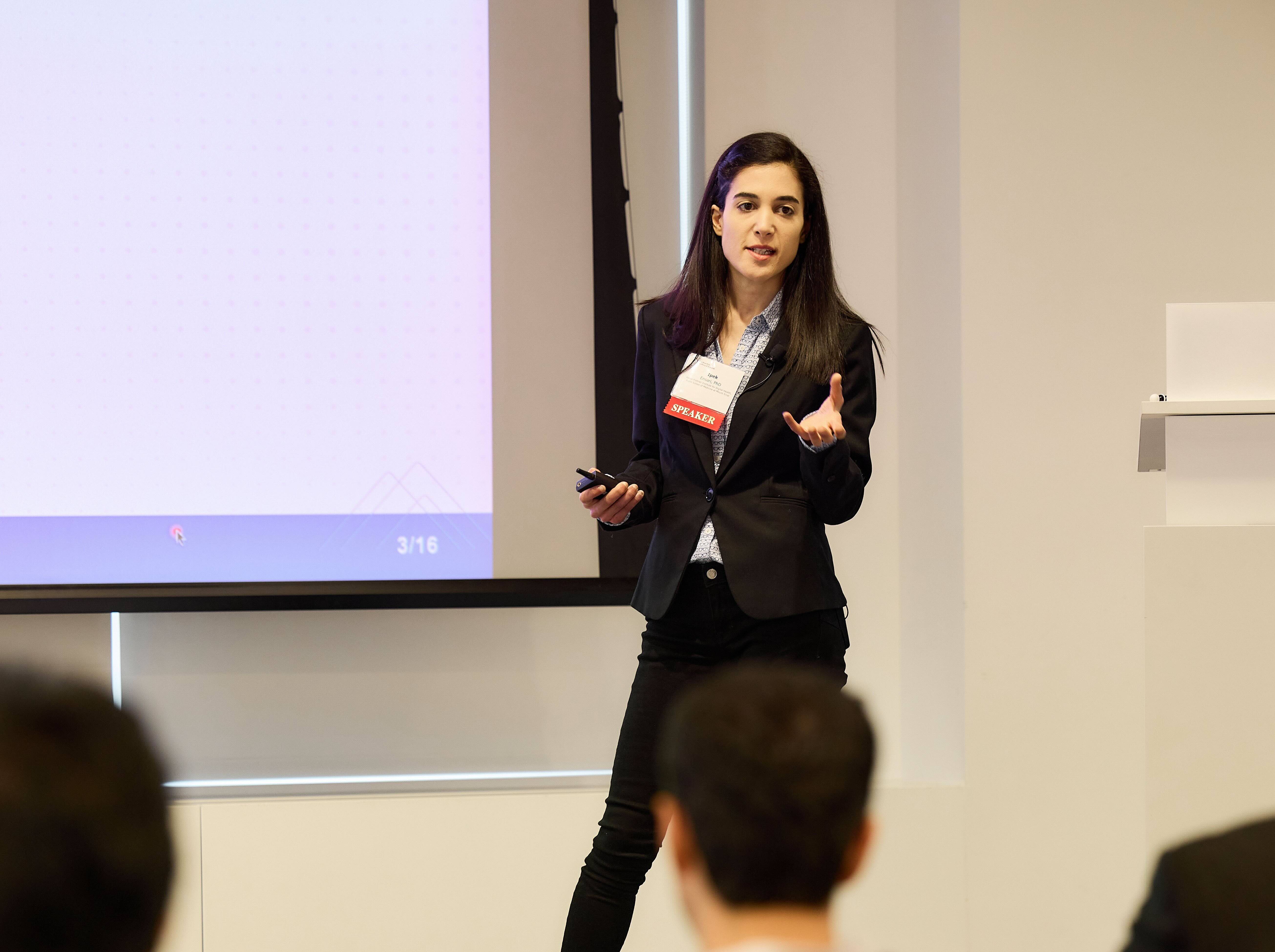Ipek Ensari, Ph.D
Improving women’s health through cutting-edge technology
My research bridges mHealth and machine learning to create digital tools for disease characterization, symptom management, and multi-modal patient-reported outcome measures in women’s and female reproductive health.
I’m an Assistant Professor in the Department of Artificial Intelligence and Human Health at the Icahn School of Medicine and the Hasso Plattner Institute for Digital Health at Mount Sinai. Previously, I was an Associate Research Scientist at Columbia University’s Data Science Institute.
Speaking Engagements
Talks Overseas
ENDOMIC Media Coverage
Research
Our lab conducts research on digital health technologies and AI methods toward improving women’s reproductive health and disorders. We have several studies that use patient-generated data obtained from various sources (e.g., wearables, sensors, electronic health records), as well as electronic health records (EHRs), to develop tools for comprehensive disease characterization and patient self-management. We are currently looking to recruit a graduate student who can help with data curation and analysis for a study on gynecological cancers and genomic biomarkers from EHRs. In addition, we have openings for OBGYN residents and fellows who are interested in getting involved in research. Please reach out to our lab PI (ipek.ensari@mssm.edu) for inquiries.
About

By day, my mind lives in the intersection of biomedical informatics, artificial intelligence, and women’s health. By night, I am a volunteer data scientist for a non-profit social impact organization. My training background spans both patient-oriented clinical research and data techniques to predict physical activity, sleep, physiological (e.g., blood pressure), and psychological outcomes (e.g., depressive symptoms). Mentoring students and fellows in our research projects is one of my favorite aspects of being a professor and lab director. I frequently think of the “digital data for good” motto – how we can maximize the return of benefits to our participants from their research data. In 2020, I collaborated with Camille Hollet-French, a Vancouver-based filmmaker, to make a documentary short about endometriosis at Imagine Science Films, sponsored by Science Sandbox at Simons Foundation. The end product is ENDOMIC (@abloodycrisis), which had its world premiere at the 2021 Slamdance Film Festival.

You can follow our lab website for current mentoring activities and research opportunities for students at the Ensari Lab at the Icahm School of Medicine at Mount Sinai.
ENDOMIC
An exhaustive meta-analytic review documenting a mysterious “women’s” issue, otherwise known as endometriosis.[1]
[1]term used to describe a clinical etiology that thus far has only been identified in primates with a female reproductive system, an anatomical structure of decidedly lower importance in comparison to those of the male primate.
ENDOMIC is a “mocumentary” through the lens of satire about modern medicine’s and society’s take on endometriosis. Using a mock-meets-doc format, the film weaves in real patient experiences in parallel with a narrative exploration of its history in the scientific literature, disparities in diagnosis and treatment, and lack of research funding, to raise awareness and help sense-making for patients.
You can follow ENDOMIC (@abloodycrisis) on Instagram, Twitter, and Facebook. Click below to read more about the film’s world premiere at the 2021 Slamdance Film Festival, media coverage, and reviews.
Other Work – E2AC
For more information on the background and methodology of the Impact Assessment Scale (IAS) development for Entertainment to Affect Change (E2AC), you can check out the project’s Github repository. The site is regularly updated whenever there is a new iteration of the data analyses to validate the factor structure and other properties of the IAS.
News and Events

- Contemporary OBGYN featured our research in March 2025. Thank you Celeste Krewson for a wonderful interview.
- Another piece in MSN Health about our research study.
- A piece by Erin Walsh, MA in Healio covering our study on mental health and exercise behavior among women with CPPDs. Shout out to Erin for this lovely conversation and her wonderful questions.
- US News & World Report picked up the HealthDay news service story on our JPR publication
- EurekAlert covered our latest study on mental health and physical activity
- Newswise coverage of our latest publication
- A list of news coverage clippings of our JPR work
- Press release on our latest publication in JPR
- News Medical coverage of our research on mental health in female chronic pelvic pain disorders
- I will be speaking at the Exploring Gender Dimensions in Artificial Intelligence for Diplomats event organized by the UN on March 6th, 2025.
- The latest data byte from our lab is posted on our blog
- Science news website PsyPost featuring our research on the effect of anger on endothelial function
Contact
 For media and consulting inquiries, please reach out via Linkedin or at ipek.ensari@gmail.com. For research-related inquiries, you can contact me at ipek.ensari@mssm.edu. Thank you for visiting my website!
For media and consulting inquiries, please reach out via Linkedin or at ipek.ensari@gmail.com. For research-related inquiries, you can contact me at ipek.ensari@mssm.edu. Thank you for visiting my website!





